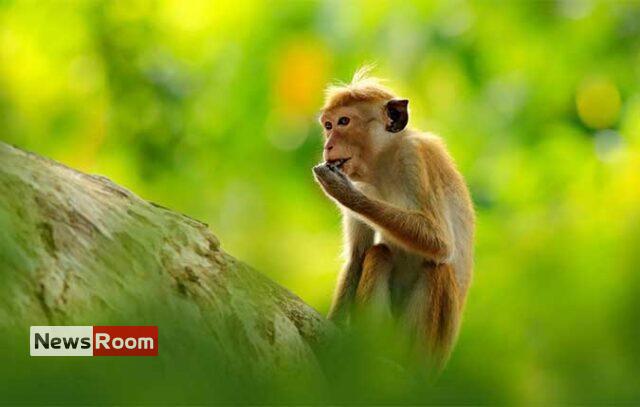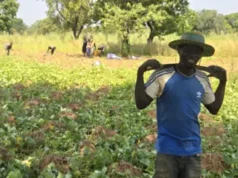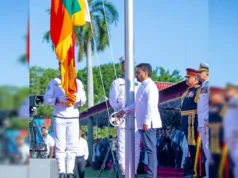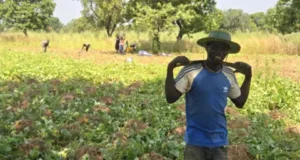by Meera Sirinivasan
Zoologists and conservationists in Sri Lanka on April 19 slammed a recent government proposal exploring the export of monkeys to China, terming it an ad-hoc, illegal, and short-sighted response to a long-standing human-animal conflict. Earlier this month, Minister of Agriculture Mahinda Amaraweera said the government was studying a proposal from a Chinese company to purchase Sri Lankan toque macaques, a golden brown-coloured monkey endemic to the country. The Chinese firm, said to be an animal breeding company according to Sri Lankan portal Newswire, had written to the Ministry, making an offer to buy “a large quantity of monkeys” from Sri Lanka, as the island nation was reportedly looking to “get rid of certain crop-destroying species”. Local media reports said authorities were considering exporting about 100,000 monkeys.
Sri Lanka’s farmers have been voicing concern over crop damage and consequent financial losses, owing to frequent attacks by monkeys in their areas. However, the government’s announcement came abruptly, the conservationists told a media conference organised by the Wildlife and Nature Protection Society of Sri Lanka in Colombo, adding that farmers had not demanded such an “ad-hoc” solution. Even as environmental groups in Sri Lanka raised alarm over the Minister’s remarks, Cabinet spokesman recently said the government was yet to hold a discussion on the subject.
Further, the conservationists said they were worried that the monkeys could end up in testing laboratories abroad. “If the monkeys are exported to Chinese labs [as some reports claim], they would be tested, and their skin and eyes could be burnt. They will effectively be tortured and killed,” said Panchali Panapitiya, an animal rights activist from the non-profit organisation Rally for Animal Rights and Environment [RARE].
Challenging the official estimates of 3 million toque macaques, Sri Lanka-based globally renowned primatologist Wolfgang Dittus said in 1977, when a large-scale enumeration was undertaken, Sri Lanka had about 6,00,000 toque macaques. “Since then, their natural habitat [forest cover] has decreased by 50 to 70% and that would mean that the monkey population has also dropped, because their existence depends on their natural habitat. So, my estimation is that Sri Lanka currently has about 300,000 toque macaques. They are an endangered species,” he said. “Monkeys are very intelligent animals, they are very much like humans,” said Dittus, who has been living among and studying toque macaques in Sri Lanka for over half a century. “We fully sympathise with the farmers and the point is to reduce the conflict between monkeys and humans. We can’t change monkey behaviour, but feeding monkeys at temples or poor management of garbage are serious problems we need to address,” he said, adding: “It is humans who create pests out of monkeys.”
A move to export monkeys to zoos would also be illegal, as Sri Lankan law permits animals to be exported only for scientific research, the activists pointed out.
Meanwhile, the Chinese Embassy on April 19 said in a press statement that the Chinese government department supervising and managing the import and export of wild animals and plants in China, is “not aware” of the request, and “has not received such application from any side.” Further, the Embassy stated that wildlife protection law in China is “very strict”. (The Hindu)








